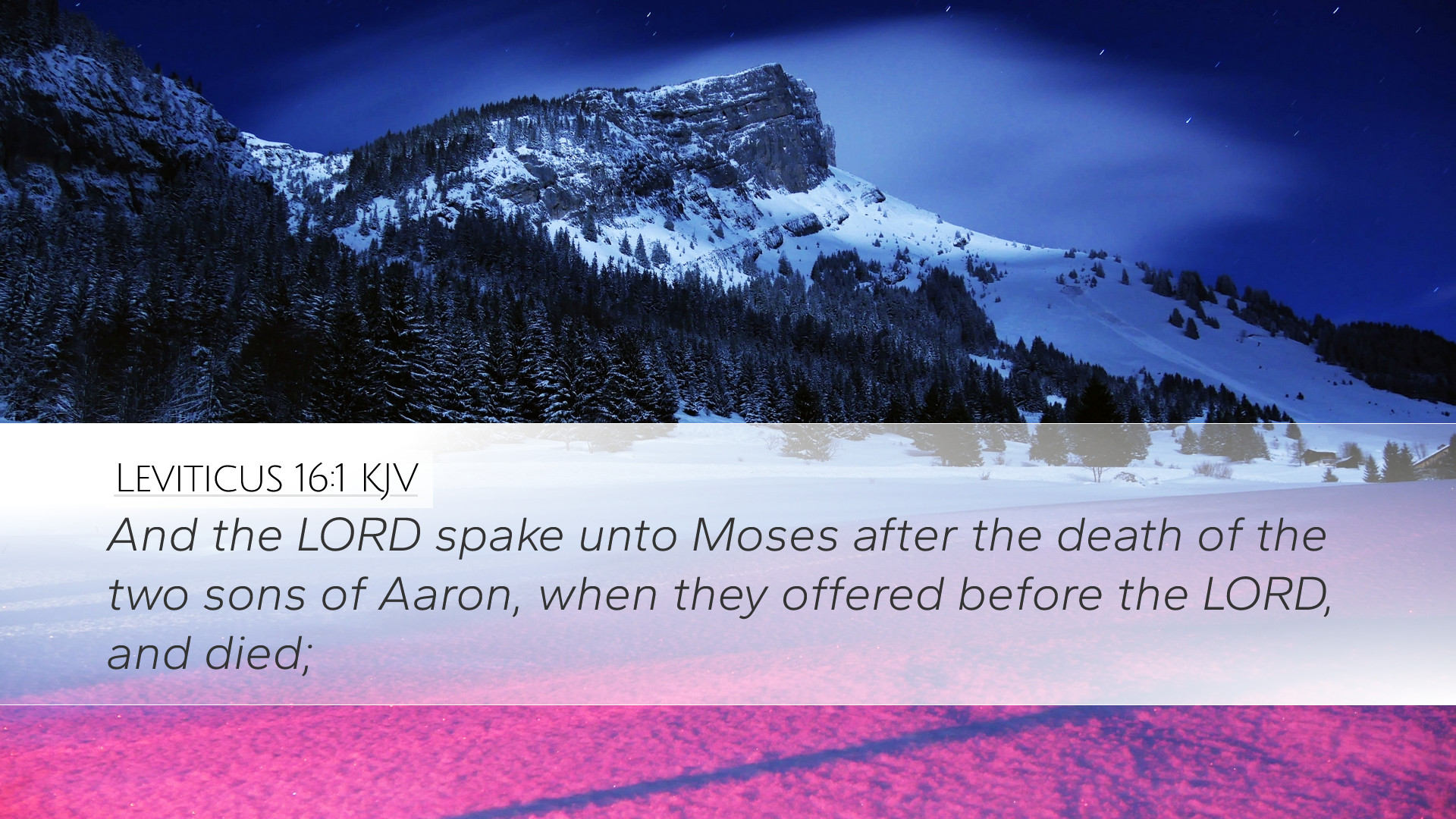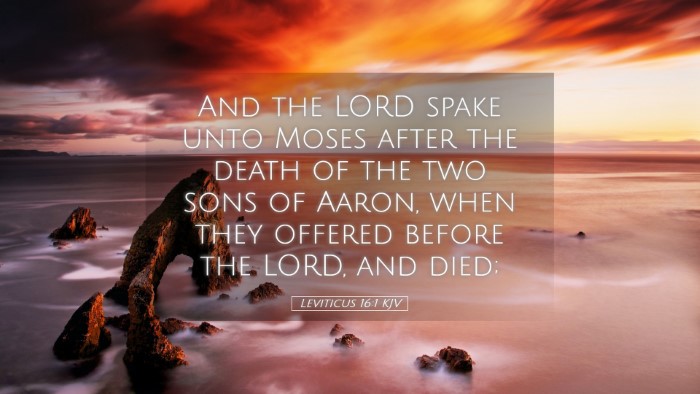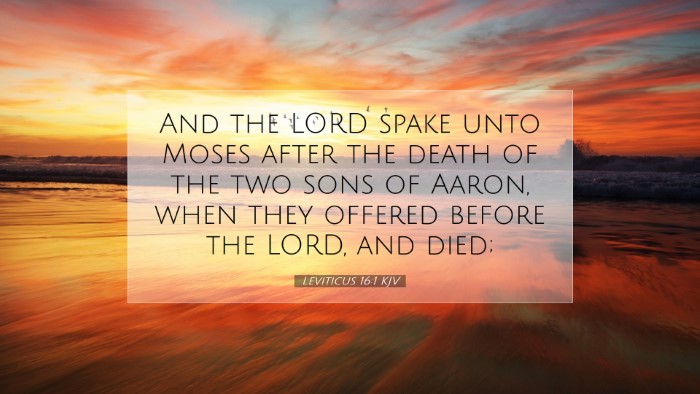Commentary on Leviticus 16:1
Leviticus 16:1 states, "And the Lord spake unto Moses after the death of the two sons of Aaron, when they offered before the Lord, and died." This verse introduces one of the most significant rituals of the Israelite religious system: the Day of Atonement, or Yom Kippur. The context provided is essential for understanding this ritual's gravity and its theological implications.
Contextual Significance
In this verse, the divine directive comes after a tragic incident involving Nadab and Abihu, Aaron's sons, who perished when they offered unauthorized fire before God (Leviticus 10:1-3). Their deaths serve as a sublime warning regarding the holiness of God and the seriousness with which His commands should be observed.
Matthew Henry emphasizes that this event highlights the necessity of reverence in worship and the dangers associated with noncompliance to God's established order. He states, "The Lord’s voice speaks after judgment has been executed, not only to remind but to instruct His people concerning worship."
God’s Instruction to Moses
This instruction to Moses underlines a pivotal moment where God seeks to reestablish proper worship practices. Albert Barnes notes that this communication signifies God's continued relationship with His people despite human failure. It demonstrates that while there is judgment, there is also mercy and the potential for atonement.
Adam Clarke points out that the moment of God's communication serves to underscore His fidelity to His covenant with the nation of Israel. "God had not abandoned His people, even in their sin; rather, He offers a way of reconciliation," Clarke writes.
The Importance of the Atonement Ritual
The context of this verse sets the stage for understanding the atonement ritual. The Day of Atonement involved specific sacrifices and the intricate role of the high priest, emphasizing the theme of mediation between God and humanity.
- Blood Sacrifice: Central to the Day of Atonement was the shedding of blood, symbolizing the gravity of sin and the serious consequences that follow. The blood of the goat was utilized for atonement, a prefiguration of Christ’s ultimate sacrifice.
- Scapegoat: The practice of sending a scapegoat into the wilderness signifies the removal of sin from the people, illustrating the dual aspect of atonement — the payment for sin and the cleansing of the sinner.
- High Priest's Role: The high priest acted as a mediator, bearing the weight of the people’s sin and approaching God on their behalf. This emphasizes the need for a representative to draw near to God to maintain communion.
Theological Implications
This passage prompts deep theological reflection on the nature of God, sin, and atonement. Henry notes that "the manner of divine instruction demonstrates God’s ongoing commitment to His people, even through their failings." Furthermore, it reflects an essential aspect of God's nature — both just and merciful, as He desires to dwell among a holy people.
Applications for Today
In practical terms, Leviticus 16:1 provides critical insights for ministers, theologians, and believers today. It calls for:
- Reverence in Worship: Acknowledging God's holiness and approaching Him with the respect demanded by His nature.
- Understanding Atonement: Recognizing the significance of Christ’s sacrifice as the ultimate fulfillment of the Day of Atonement.
- Continuous Instruction from God: Emphasizing the importance of prayerful listening to God’s word in the life of individual believers and the church as a whole.
Conclusion
Leviticus 16:1 is rich with implications for both ancient Israel and modern faith practices. It serves as a reminder of God’s holiness, the seriousness of sin, and the grace afforded through atonement. As believers reflect on this verse, it is not merely a historical reference; it invites an ongoing exploration of God’s character and the profound mystery of redemption.


